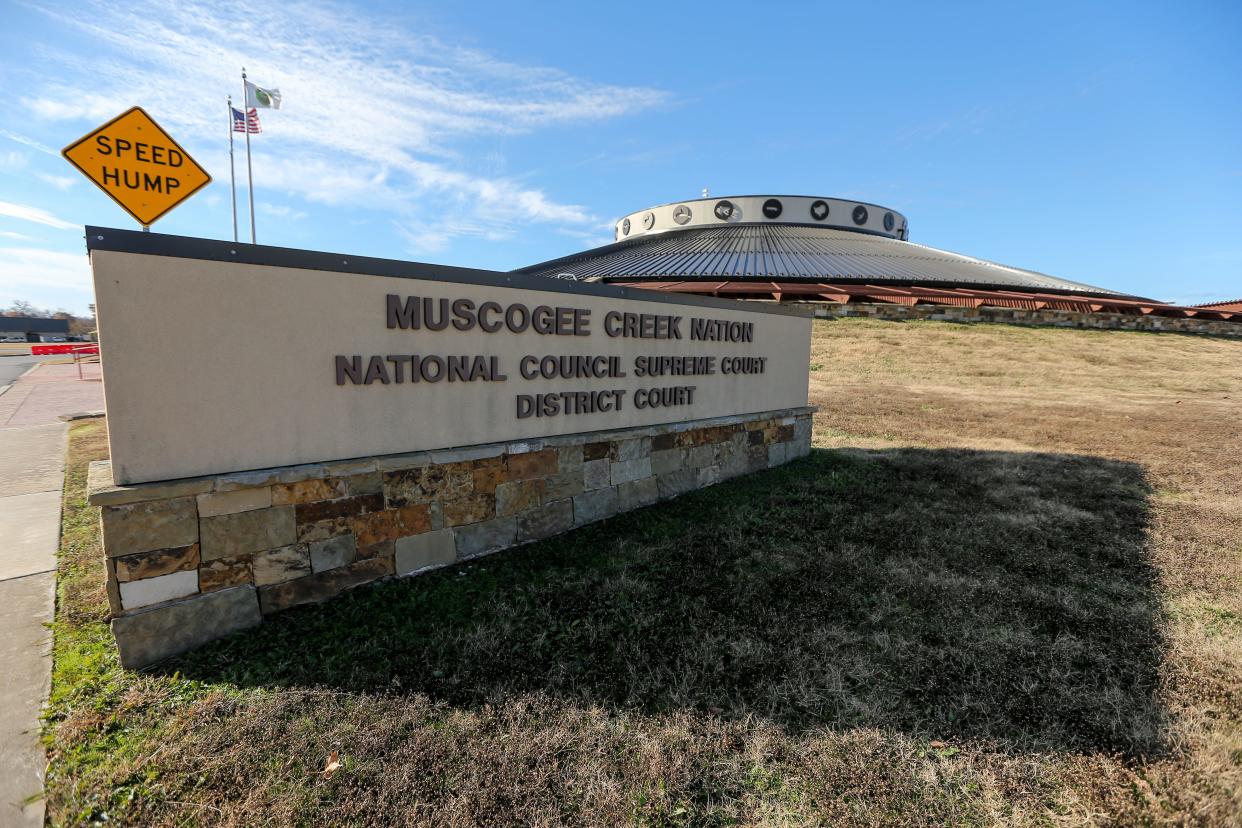Guest: Freedmen and their descendants once flourished as tribal members

In 2023, there are places in the United States where some Black people are still denied the right to vote, access federal services and receive unequal criminal justice rights in spite of U.S. law. This discrimination originates from the Five Tribes with the knowledge of the federal government, which ignores its treaty obligations to descendants of tribal freedmen. In 1866 after the Civil War, treaties between the United States and the Five Tribes granted people of African descent rights of citizenship within these same tribes that held them as slaves. Nearly all the freedmen of the Five Tribes had been generationally enslaved by tribal law long before the Trail of Tears.
More: Clash over jurisdiction: What tribal leaders, Gov. Stitt, others say will move Oklahoma forward
After 1866, freedmen and their descendants flourished as tribal members, attending tribal schools, holding tribal office, building businesses, especially in the Muscogee (Creek), Cherokee and Seminole nations. However, 1907 Oklahoma statehood and subsequent segregation laws renewed the acceptance of beliefs of Black inferiority and Black lower social status regardless of tribal membership since segregation and grandfather clause laws applied to all persons with African ancestry.
Beginning in the 1970s after U.S. law encouraged tribal elections and economic development, tribal leaders began to pass laws under the guise of tribal sovereignty to block freedmen and freedmen descendants from exercising their tribal membership rights. This was done by only allowing current tribal membership for people whose ancestors were listed on the "by-blood" sections of the Dawes rolls, which were made by the U.S. government about 1900 to divide tribal land. Degrees of blood — a concept foreign to tribes — was set up solely to determine when tribal members' land would be sellable.
The U.S. government has approved tribal constitutions allowing disenrollment even where freedmen tribal members were barred (or almost completely barred) from voting. Tribal leaders have used freedmen citizenship as “wedge issues,” falsely asserting that freedmen were “non-Indians” (although many freedmen had documented Native American ancestry), were “forced on the tribe,” were Black squatters from Arkansas, or only gained the right to live on tribal reservations through 1866 treaties. Descendants of non-Black adopted citizens have generally continued tribal membership.
Currently, only the Cherokee Nation upholds its treaty obligations to the freedmen after the 2017 federal case Cherokee Nation vs. Nash & Vann was won by freedmen litigants. Cherokee Nation leadership has worked to ensure freedmen tribal members may vote, are awarded contracts and may access tribal annuities such as from CARES Act provisions on the same basis as other tribal members. However, in the Seminole Nation, the tribe has passed laws only allowing freedmen tribal members to vote and hold office, even though the tribe was directed by the U.S. government to allow freedmen to access services after the 2001 federal case Seminole Nation vs. Norton.
Seminole Nation leaders acknowledged that freedmen's ancestors fought to save the tribe prior to removal but asserted that was the past. Muscogee (Creek) Nation leaders assert that the United States signed the current constitution and that freedmen know little language and culture. I say the United States violated the treaty by signing the tribal constitution and it is common knowledge there are few living Muscogee language speakers. 21st-century Muscogee (Creek) freedmen descendants continue to fight for their rights in tribal and federal court. Choctaw and Chickasaw freedmen descendants have no rights under current tribal law. In 2020, the Choctaw chief blamed poor economic conditions of freedmen on the United States and not the tribe.
The tribes ignore their history regarding freedmen rights. Freedmen descendants seek justice as they still face lack of opportunity and more poverty due to federal and tribal government decisions.

Marilyn Vann is president of the nonprofits Descendants of Freedmen of the Five Civilized Tribes Association and African Indians of the 5 Civilized Tribes Foundation. Vann was a litigant in federal court cases: Vann et al v. Zinke and Cherokee Nation v. Nation and Vann. To learn more about freedmen, go to www.freedmen5tribes.com.
This article originally appeared on Oklahoman: Guest: Tribes ignore their history regarding freedmen rights

